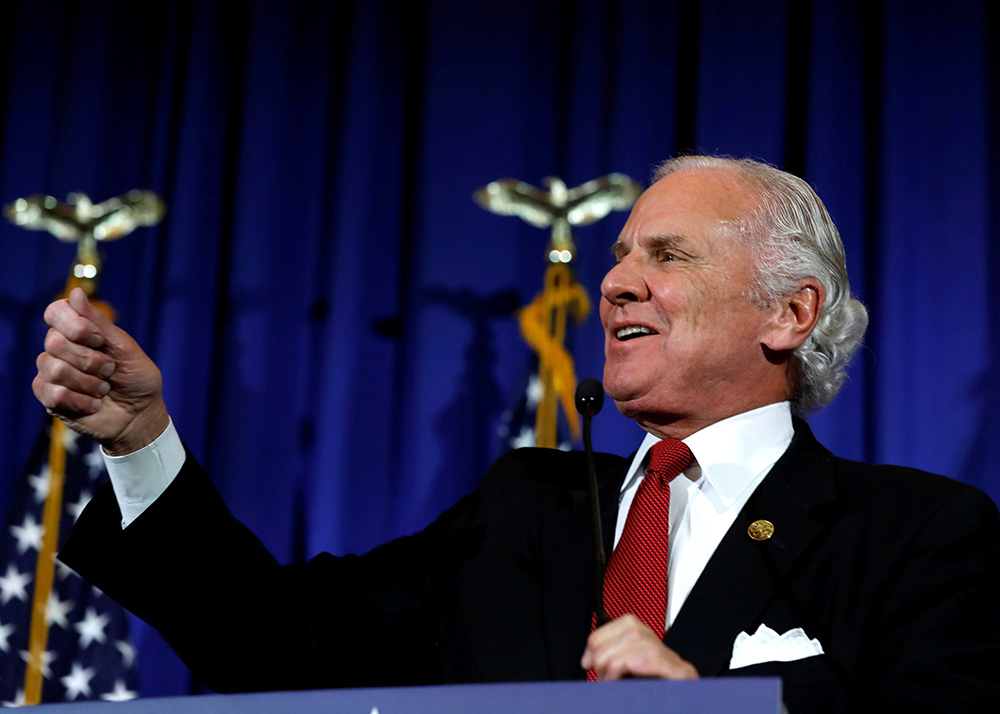
WASHINGTON — South Carolina Gov. Henry McMaster signed a school choice bill into law on May 4 that will enable families in the state to receive annual vouchers for their children’s education-related expenses, including private school tuition.
The measure, discussed in the state legislature for almost two decades, was applauded by the state’s Catholic leaders.
After the House overwhelmingly passed the bill on April 27 with a 74-36 vote, the South Carolina Catholic Conference said it “affirms its strong support for educational reform and is grateful that the General Assembly has passed legislation that gives families greater educational opportunities through the Education Scholarship Trust Fund program.”
The measure will allow low- and middle-income families to apply for up to $6,000 a year through state education scholarship accounts starting in the fall of 2024.
At first, the program will be open to 5,000 students whose families earn about $60,000 or less. Within three years, 15,000 students in families making around $120,000 or less will be eligible.
The South Carolina Catholic Conference, the public policy arm of the state’s bishops, said these education scholarship accounts will “give parents the freedom and funding to select the best learning environment for their children’s individual needs. This program will help qualifying families who are most in need of support in our state.”
It also said the scholarship accounts “honor and uphold” parents’ rights to “make decisions that support quality and personalized learning for their families,” stressing that the Catholic Church teaches that “parents are the first and primary educators of their children.”
The conference also noted that this voucher program, along with other state initiatives, “will help progress education in our state.”
South Carolina’s new law makes it the fifth state to enact new or expand school choice legislation this year, along with Florida, Arkansas, Utah, and Iowa.
Before this program can get started, it will still likely have to face legal challenges from opponents who argue that it violates the state constitution, which prohibits using public money for private educational institutions
Supporters say the measure will survive challenges because it funds savings accounts instead of giving money directly to private schools.
Information on the bill on the website of the Diocese of Charleston said it was “the start to ushering in a new era of education in the Palmetto State” and urged Catholics to thank their elected officials for passing it.
Earlier this year, as school choice initiatives were gaining momentum across the country, Sister Dale McDonald, a Sister of the Presentation of the Blessed Virgin Mary and vice president of public policy with the National Catholic Educational Association, said the organization “applauds state leaders for recognizing parents’ rights to determine the best fit for their children.”
She said more than 30 states have some kind of program in place for school choice, and several are currently looking to expand what they already have.
For years, the bishops of New York have been fighting for some kind of financial relief for parents who pay tuition in Catholic schools.
The last time this seemed like it could be a possibility was a 2016 tax credit bill that had initial support from lawmakers, but then the majority of them backed away from it.
James Cultrara, director for education with the New York State Catholic Conference, told The Tablet in February that New York families deserve similar benefits that other states are getting with school choice initiatives.
He said the conference will continue to urge Gov. Kathy Hochul and state lawmakers “to support tuition-paying families in the same way they support families choosing charter and traditional public schools.
“Sadly, to date,” he said, “the governor and legislative leaders have not demonstrated the political will to implement true choice in New York.”
